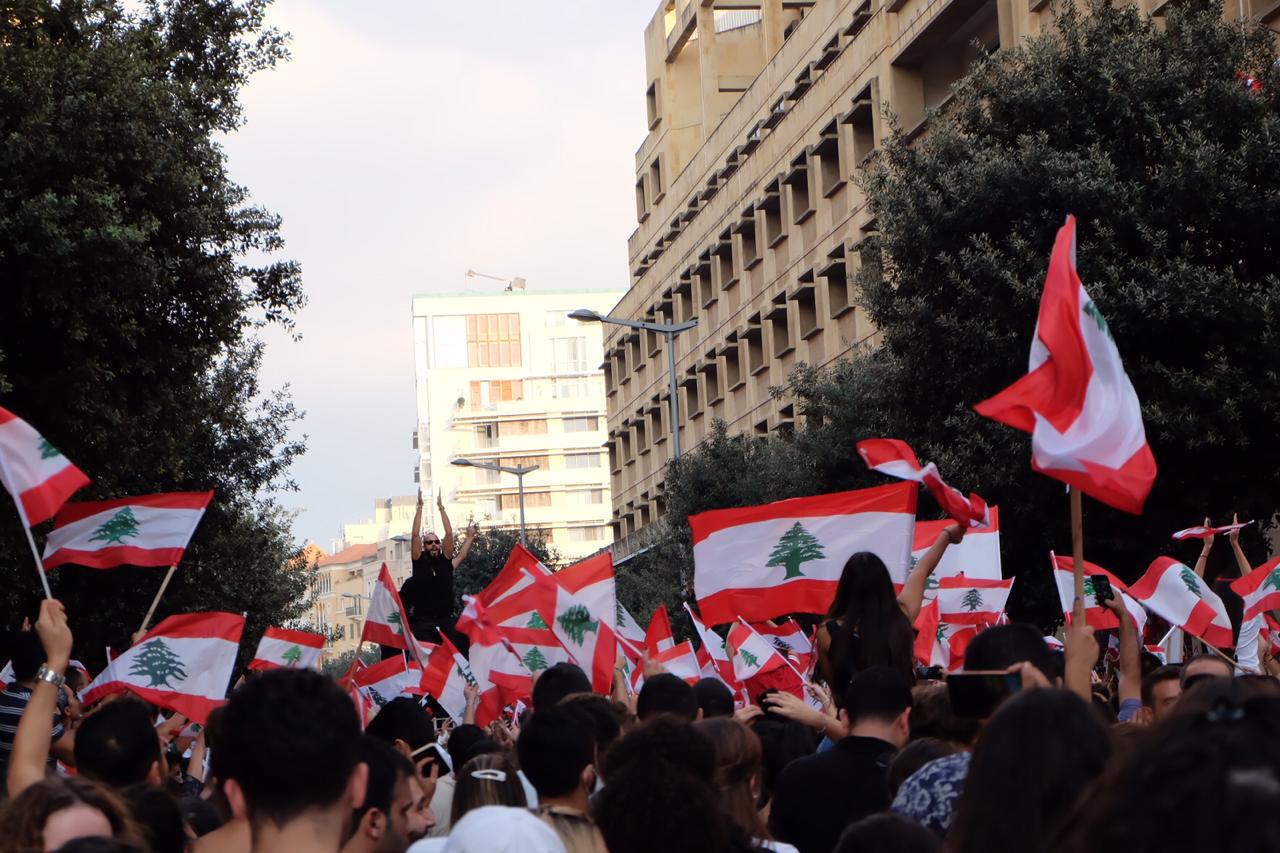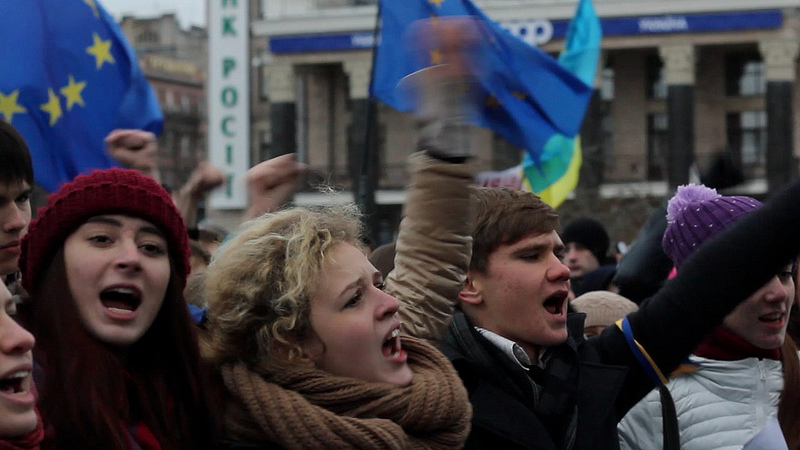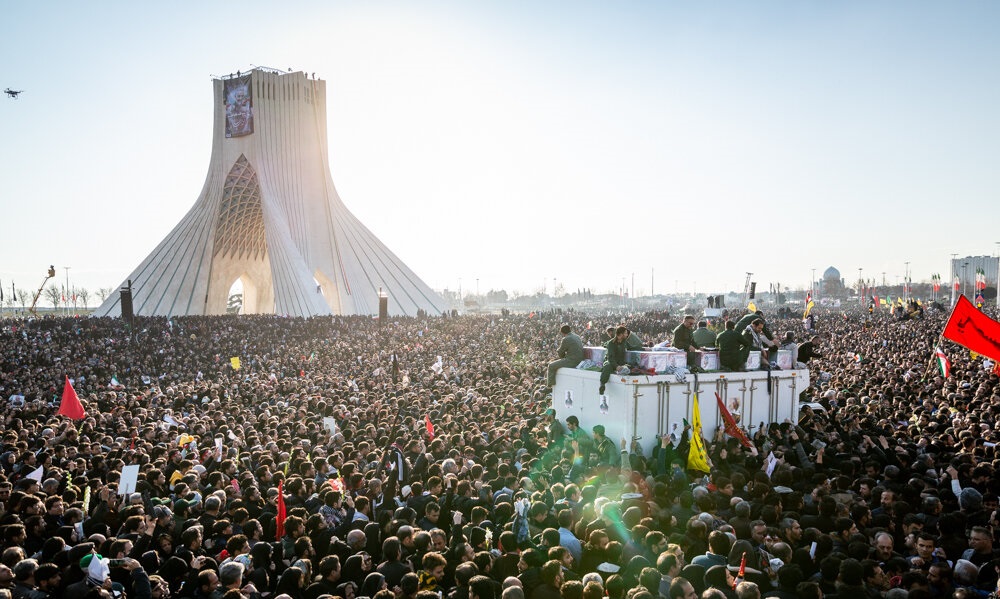Guest post by Michael Hoffman
Since October 17, Lebanon has witnessed sustained large-scale demonstrations against its ruling elite, as part of a global wave of protests. These protests are unlike anything Lebanon has experienced since its civil war from 1975-1990, and appear to be remarkably cross-sectarian, both in their composition and their message. For many Lebanese, this movement represents hope for a fundamentally new way of doing politics.
Many commentators have pointed to Lebanon’s youth as the vanguard of this uprising. The most common interpretations of this youth-led mobilization point to economic grievances, opposition to entrenched political elites, and anti-sectarianism. But are young Lebanese especially disenchanted? In 2018, I conducted a national survey of 1,500 Lebanese citizens on key social and political issues. Some of these claims stand up to empirical scrutiny—but many do not.
With increasing poverty rates, staggering youth unemployment, and rising consumer prices, young Lebanese certainly have reasons to be concerned about their country’s economy. Indeed, when asked about the state of the economy, citizens of every age group reported decidedly negative views.
However, younger citizens are noticeably less negative than their older counterparts, with 59 percent of the youngest age group describing the state of the economy as “Very Bad,” compared to 83 percent among the oldest group. Likewise, younger Lebanese are less likely (around 75 percent) to describe the economy as worse than the previous year than are the oldest two cohorts (88-90 percent). The younger two groups are more than twice as likely to believe that the economy will improve than are the oldest two groups (18-21 percent vs. 7-8 percent). Thus, despite general economic pessimism, younger people in general are not more negative about the economy.
The second part of the story suggests that Lebanon’s youth are particularly disaffected with political elites. Accounts of the protests point to young people demanding the removal of the entire political class; these demands have already led to the resignation of Prime Minister Saad Hariri.
The evidence, though, suggests a much more ambiguous picture. My survey asked respondents about their feelings towards three of the most prominent political figures, each with a well-established position among the existing elite: President Michel Aoun, Prime Minister Saad Hariri, and Hezbollah Secretary-General Hassan Nasrallah, key figures in the (Maronite) Christian, Sunni, and Shi`a communities, respectively.
While young people are considerably more likely to report “disliking” Hariri (57 percent among the youngest respondents compared to 43 percent among the oldest), and are significantly less supportive of Nasrallah (with 36 percent of the youngest cohort disliking him, compared to 24 percent in the oldest group), the differences are relatively small in regards to Aoun: every age group falls in roughly in the same range (27-34 percent) in answering that they “dislike ” him.
What does this suggest? First, not all entrenched Lebanese politicians are universally loathed. Second, younger Lebanese citizens may be fed up with some politicians, but their disgust does not apply equally to the entire political class.
The final claim is that young Lebanese have taken to the streets in rejection of the sectarian system, which allocates religious groups fixed shares in political representation. Young people are often said to be fed up with the rigidity of this system, and the conflict it seems to generate, and calling for an end to sectarian quotas and a move towards true democracy.
Indeed, the vast majority of Lebanese citizens of every age group express support (at least in the abstract) for abandoning the sectarian system. The youngest group is the most likely to agree with this sentiment, with near-universal opposition to the system (96 percent), though it is worth noting that only one group (those aged 60+) fall below 90 percent on this question, and 85 percent of them still agree that the country should abandon the sectarian system. It is plausible, then, that anti-sectarianism is truly widespread, and may be especially common among young people.
But the relationship between young Lebanese citizens and sectarianism is in fact more complicated. When asked if religion is the most important social division in Lebanon, the youngest group was actually the most likely to agree, with nearly two-thirds of respondents holding this view, compared to only half of the oldest generation. The claim that young Lebanese simply “no longer feel sectarianism” should be treated with skepticism.
My survey was conducted shortly after last year’s Lebanese elections, which gave citizens the opportunity to act on their anti-sectarian ambitions. The outcome of these elections, however, led to relatively little change. But were younger citizens more likely to disavow sectarianism and reject religion as a basis for their vote choices?
The short answer is: no. While the youngest group was somewhat less likely to vote than other groups (reported turnout was 47 percent among 21-29 year-olds compared to 53 percent among others), young people were actually more likely to say that religion influenced their vote. Nearly half (45 percent) of 21-29 year-olds said that religion affected their vote choice, higher than the corresponding figure of 42 percent for those aged 60+ and substantially larger than the 34 percent among citizens aged 50-59. Young people may express greater principled opposition to the sectarian system, but they as likely as their parents to vote on religious lines.
The bottom line: grievance in Lebanon is widespread, and not especially concentrated among young people. Lebanese youth, seemingly at the forefront of the ongoing protests, are in some ways markedly different from previous generations. Most noticeably, they are disenchanted with existing politicians, and are more likely to express opposition to the sectarian system. However, it remains to be seen whether these attitudes will translate into voting behavior. Change may come, but not because young people are any more economically aggrieved, anti-elite, or secular than their parents and grandparents.
Michael Hoffman is an assistant professor of political science at the University of Notre Dame.







